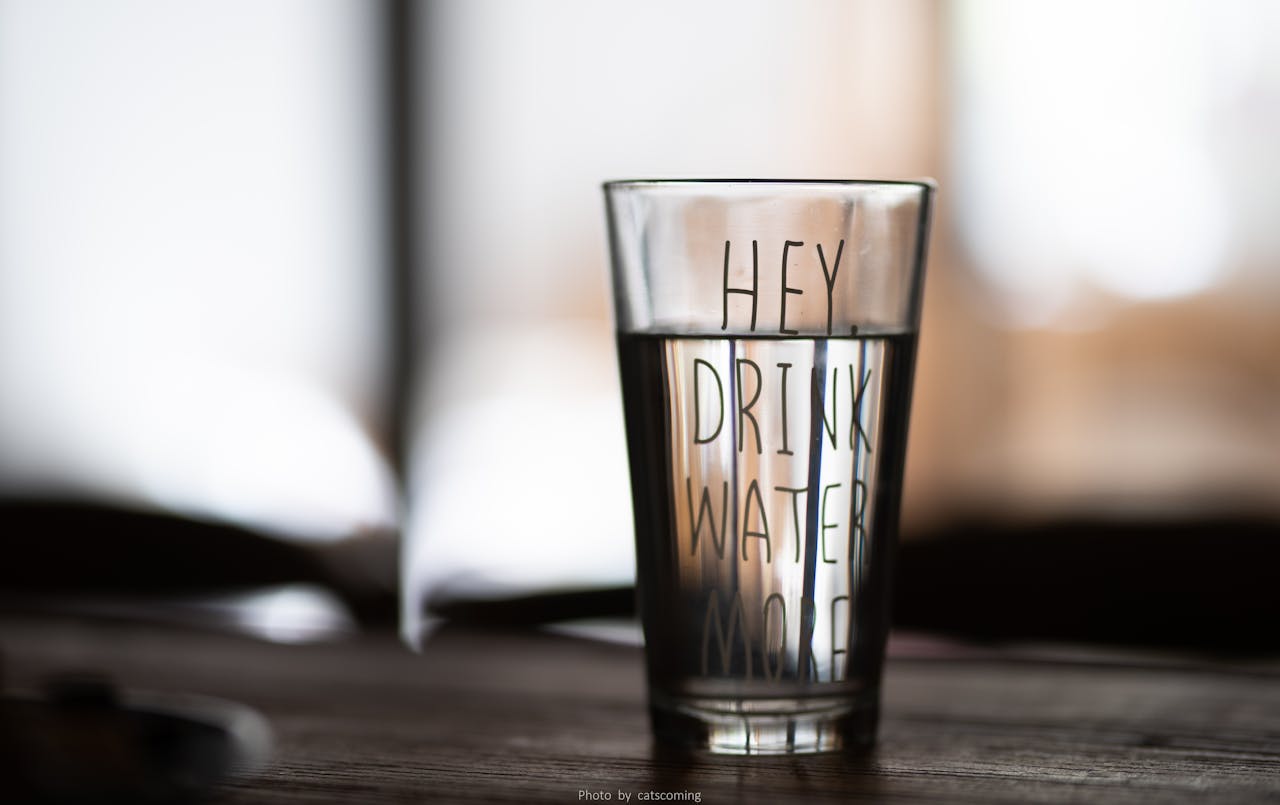7 Science-Based Health Benefits of Drinking Enough Water

Staying hydrated is essential for optimal health and well-being, yet many people underestimate its significance, with about 75% of Americans experiencing chronic dehydration. Since our bodies are composed of roughly 60% water, maintaining proper hydration is vital for overall health and vitality. The “8×8 rule,” which recommends drinking eight 8-ounce glasses of water each day, is not just good advice; it’s a crucial habit that can significantly affect our lives, as every cell in our body depends on water to function effectively.
In this blog, we’ll dive deep into seven evidence-based health benefits of staying adequately hydrated, all supported by scientific research. From boosting energy levels to enhancing skin health, you’ll discover how simple adjustments to your hydration habits can lead to significant improvements in your daily life. So grab a glass of water and let’s explore the incredible benefits together!
1. Helps Maximize Physical Performance

Even a slight dip in hydration levels can seriously impact your physical performance. Studies have shown that losing as little as 2% of your body’s water weight can lead to noticeable declines in strength, endurance, and overall performance. For athletes, this water loss can be even more pronounced, with some losing up to 10% of their body water through sweat during intense exercise. Keeping hydrated not only prevents fatigue but also maintains optimal body temperature, allowing you to perform at your best.
Proper hydration aids in muscle function and endurance by ensuring that your body can efficiently regulate temperature and maintain blood flow. Dehydration can lead to muscle cramps, dizziness, and heat exhaustion, all of which can hinder your physical abilities. By drinking enough water, you can maintain your energy levels, improve recovery times, and enhance overall athletic performance.
2. Significantly Affects Energy Levels and Brain Function

Your brain is highly sensitive to changes in hydration levels. Even mild dehydration—around a 1-3% loss of body weight—can impair various aspects of brain function. Studies have demonstrated that inadequate hydration can negatively affect mood, memory, and cognitive performance. This means that staying hydrated is not only crucial for your physical health but also for your mental clarity and overall productivity.
When you’re well-hydrated, your brain receives the necessary nutrients and oxygen it needs to function efficiently. This leads to improved concentration, sharper memory, and a better mood. On the flip side, dehydration can cause headaches, fatigue, and problems with focus. To keep your brain functioning at its best, make sure to drink water throughout the day, especially during mentally demanding activities.
3. May Help Prevent and Treat Headaches

Dehydration is a well-known trigger for headaches and migraines. When your body is low on fluids, it can lead to a decrease in blood volume, reducing the flow of oxygen to your brain and triggering pain receptors. Research has shown that increasing water intake can help alleviate headache symptoms, although more studies are needed to confirm the extent of this benefit.
Drinking water can provide relief for those who suffer from chronic headaches, as it helps maintain the balance of electrolytes in the body and supports overall brain function. While water alone may not completely eliminate headaches, it can certainly reduce their frequency and severity. If you’re prone to headaches, consider incorporating more water into your daily routine as a preventative measure.
4. May Help Relieve Constipation

Hydration plays a crucial role in maintaining digestive health. Water helps to soften stool, making it easier to pass and preventing constipation. Studies have shown that low water consumption is a significant risk factor for constipation. Drinking enough water can promote regular bowel movements and improve overall digestive function.
Mineral water, in particular, has been found to be especially effective in preventing constipation, thanks to its higher magnesium and sodium content. These minerals help attract water into the intestines, softening stool and making it easier to pass. If you struggle with constipation, increasing your water intake and opting for mineral water can be a simple yet effective solution.
5. May Help Treat Kidney Stones

Kidney stones are hard deposits of minerals and salts that form in the kidneys and can cause severe pain and discomfort. One of the primary causes of kidney stones is dehydration, which leads to higher concentrations of minerals in the urine, increasing the likelihood of stone formation. Drinking enough water helps dilute these minerals, reducing the risk of crystallization and stone formation.
While more research is needed to fully understand the relationship between hydration and kidney stones, current evidence suggests that increasing water intake can help prevent their formation. By staying well-hydrated, you can reduce the concentration of minerals in your urine and lower your risk of developing these painful stones.
6. Helps Prevent Hangovers

Dehydration is one of the main culprits behind the dreaded hangover. When you consume alcohol, it acts as a diuretic, causing you to lose more water than you take in and leading to dehydration. This can result in a range of unpleasant symptoms, including headaches, fatigue, and dry mouth. By staying hydrated before, during, and after drinking alcohol, you can help mitigate these symptoms and feel better the next day.
Practical hydration strategies include drinking a glass of water between alcoholic beverages, consuming water-rich foods, and hydrating thoroughly before going to bed. Research has shown that maintaining adequate hydration can significantly reduce the severity of hangovers, allowing you to enjoy your night out without the next day’s regrets.
7. Can Aid Weight Loss

Water can be a helpful tool in your weight loss journey. Drinking water has been shown to increase feelings of fullness, leading to reduced calorie intake. Additionally, water can boost your metabolic rate, helping you burn more calories. Studies have found that drinking water before meals can lead to greater weight loss compared to not drinking water.
Replacing high-calorie beverages with water is another effective strategy for weight management. By swapping sugary drinks for water, you can significantly reduce your overall calorie intake and support your weight loss goals. Incorporating water into your daily routine can help you stay on track and achieve your desired weight.
Final Thoughts

As you can see, hydration goes far beyond simply quenching your thirst. It plays a vital role in various bodily functions, from athletic performance to brain function and digestive health. By making sure to drink enough water throughout the day, you can reap numerous benefits for your overall well-being. So next time you reach for that glass of water, remember all the ways it’s helping your body and mind function at their best. Stay hydrated! Keep drinking! Stay healthy!
Stay hydrated! Remember: hydration is not just important during physical activity but also in everyday life. Make it a habit to carry a water bottle with you wherever you go and aim to drink at least eight glasses of water each day. Your body and mind will thank you for it! So go ahead, take a sip, and enjoy all the benefits of staying hydrated.
Leave a Reply